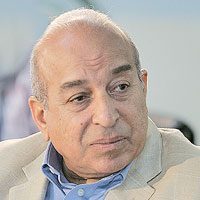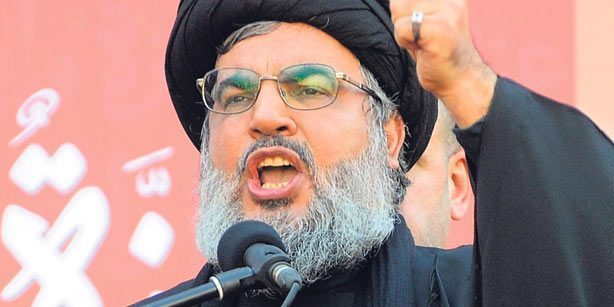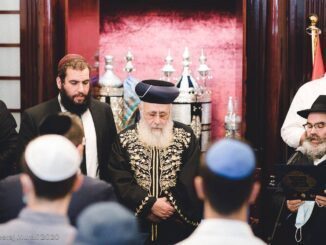
By: Fahmi Huwaidi *
The Saudi delegation’s visit to Israel has really shocked us, but it has not completely surprised us.
(1)
Without the photo that was published, we would not have believed. Mr. Anwar Eshki, the former intelligence official who later became the director of a Center for Studies in Jeddah, appeared among some of the Knesset members in Jerusalem. To complete the scene, former Gen. Ofer Bar-Lev -a hawkish Labor Party member, who led the “Siirt Matkal” unit, which was responsible for the assassinations in the Arab countries- was standing among them. Bar-Lev used to boast during his election campaign that he killed the largest number of Arabs during his military service. Among those who met the man in Jerusalem, was the Director-General of the Israeli Foreign Ministry, Dore Gold, the author of the “Kingdom of Hatred” book, which was devoted for substantiating the claim that Saudi Arabia supported terrorism in the world.
Haaretz reported in its issue of 22/7/2016 that Mr. Eshki (72 years) was accompanied by an unofficial delegation including a number of academics and businessmen. Though Haaretz pointed out that Eshki does not hold any official position, but the visit was not to take place without the approval of the Saudi authorities. Members of the Saudi delegation did not appear in the picture that was published, but we knew that the head of delegation held several meetings with Israeli officials and members of parliament (Knesset). These meetings were not held at a government office, but they were held at the King David Hotel, where Eshki and his delegation resided. After Eshki’s visit to Jerusalem, the man visited Ramallah and met with Palestinian President Mahmoud Abbas and some Palestinian figures. Through the announced information, we knew that General Eshki had previously visited Ramallah several times, and that he had met Israeli officials during these visits. Due to his recent visit, Eshki has become described as the godfather of normalization between Israel and Saudi Arabia, although he used to introduce himself as the director of a Center for research, a thinker and strategic researcher. However, Eshki no longer mentions his military background and his role as a former intelligence official, who left the service but did not secede from power.
(2)
Being shocked by the timing of the visit, its justification has also surprised us, not only because Eshki said that it was just a self-initiative, and that the studies center that adopted it was independent from the government, but because he tried to convince us that it was in favor of Palestine. Speaking to Saudi media, Eshki said that he did not visit Israel, but he visited Palestine; and that Jerusalem, which Israelis consider their capital, is in his view, Palestinian, and an Arab and Islamic cause. He added that during the visit he met with the families of Palestinian martyrs and attended the wedding ceremony of the son of the Palestinian leader, Marwan Barghouti. He also said that he led worshipers in the Maghreb (sunset) prayers in Al-Aqsa Mosque in Jerusalem, and also led them in the Mosque of Omar Ibn al-Khattab, which is located in the Nativity in Bethlehem, and that the objective of all this was to support the Palestinian cause.
In another statement, Mr. Eshki stated that the aim of the visit was to discuss the Arab Peace Initiative that was launched by Saudi Arabia and adopted by the Beirut Arab summit in 2002. MK Eissawi Faraji commented on Eshki’s words by saying that he suggested that Eshki should hold an expanded meeting with members of parliament who support the initiative, adding that the Saudis have become wishing to be publicly open up to Israel to complete the path of the late Egyptian President Anwar Sadat.
The latest public opening up toward Israel was not the first of its kind, and Mr. Eshki was not the only one who tackled it. In January last year (2015), Eshki published a photograph of him while he was laughing and shaking hands with the Director-General of Israeli Foreign Ministry, Dore Gold, after participating together in a seminar held by the Council on Foreign Relations in Washington. Later, (in May of the same year) “Yediot Ahronot” conducted an interview with him, that was described as bold, in which he stated that Saudi Arabia was ready to open an embassy in Israel if the Israelis accepted the Saudi / Arab initiative.
On the other hand, Prince Turki al-Faisal, the former Saudi intelligence chief, held a meeting with Israeli officials in Brussels on May 26 2014, during a debate organized by the German “Marshall” organization to discuss the Palestinian issue and the fight against terrorism. The representative of Israel in the debate was the former head of the Israeli Army’s Intelligence Division, Amos Yadlin. On the sixth of May this year Washington Institute hosted a debate between Prince Turki Al-Faisal and Israeli Maj. Gen. Jacob Brigador, Israel’s former national security adviser. The two men spoke about the need to continue dialogue to achieve security and peace. Haaretz published, in February of this year, a picture that brought together the Saudi Prince and former Israeli Defense Moshe Ya’alon, when they met at the Munich security conference, held in the German city.
(3)
When two of the symbols of power in the Kingdom of Saudi Arabia -the first is a prince and former head of the Saudi intelligence service and a former ambassador to Washington, and the second is an intelligence officer who worked as adviser of the Council of Ministers’ Special Committee- conduct public contacts with Israel, we cannot consider these contacts “personal initiatives”. However, persistence of these contacts means that the Saudi authorities did not object to them unless they were conducted with their full consent. No less important is that the announcement of those contacts, starting from 2014, means that the road has become paved and open between Riyadh and Tel Aviv, and that what was made public was an update of what was not announced in previous years. We have the evidence to support that conclusion.
Israeli studies documented attempts of the Zionist leaders to penetrate the Arab world since the fifties of the last century, a few years after the founding of the Jewish state, and more particularly after the Egyptian revolution on July 23, 1952, which was considered a challenge to Israel at the time, especially when it (revolution) embraced the national line and adopted the cause of Palestine as a central issue.
Israel had a role in supporting the monarchy after the Yemen revolution at the beginning of the sixties. The Saudi intelligence arranged the Israeli aircraft’s transfer of numbers of European mercenaries to fight along with the royalists, especially during the 70-Day Battle during which the capital, Sanaa, was besieged. Late Professor Mohamed Hassanein Heikal, in his book, “Secret Negotiations between the Arabs and Israel-Part-2”, talked about the Saudi-Israeli cooperation during the war in Yemen. So, the Saudi monarch at the time imagined that the presence of Nasser’s army (of Egypt) in Yemen was a threatening to his throne, as happened with King Faisal II of Iraq when he was overthrown by the Iraqi revolution of 1958.
(4)
Could we compare Israel’s support to Saudi Arabia in the conflict between the Saudi King and Nasser of Egypt with Israel’s current lining up with the Kingdom in its struggle against Iran? Could we also compare Egypt’s role in Yemen during the Nasser era, which bothered Saudi King Faisal, with the role played by Iran in supporting the Houthis in Yemen, which has also angered and disturbed Riyadh? Is there a similarity between Israel’s keenness on weakening Nasser and depleting him in Yemen and its eagerness to defeat Iran and break its influence in the same arena?
I thought of these questions while I was trying to search for the reasons of the Saudi-Israeli communications and making them public at the present time. Although I cannot respond to these questions positively, yet I cannot also ignore them. However, the Arab atmosphere is now poised for such communications, especially after the widespread allegation that the enemy is not Israel, but Iran, or that terrorism has become the greatest threat to the nation. This coincided with the claim that Israel has become a party in the moderate Sunni camp in the face of Shiite Iran, and such myths that have contaminated the Arab perception and justified the reconciliation with Israel or even collusion with it.
Another possibility may have contributed to the public communications between Riyadh and Tel Aviv, which is the new situation of the islands of Tiran and Sanafir after annexing them to Saudi Arabia, according to which Saudi Arabia has become a party in the Camp David Accords. The two islands’s location and control of the Red Sea entrance represents critical strategic importance to Israel, which would give them a special military status, probably necessitating an “understanding” with the Saudis.
We cannot delude ourselves that the Saudi visit was related to the Palestinian cause, even if this was claimed. At the same time it is not clear yet which of the previous reasons brought things to what we have reached. Perhaps, each of these reasons had a role in what happened. But we cannot turn a blind eye to the synchronization between the Saudi visit and the Arab summit in Nouakchott, which embodied the distance between the dream that has dissipated and the miserable reality that we have come to.
*Fahmi Huwaidi is an Egyptian columnist. He writes for several Egyptian and Arab newspapers, including Al Jazeera, Al-Shorouk and Al-Dustour. He has been called “probably the most widely read Arab political analyst”.
(Published in Al-Shorouk on Monday, July 25, 2016, and translated for MEO)



